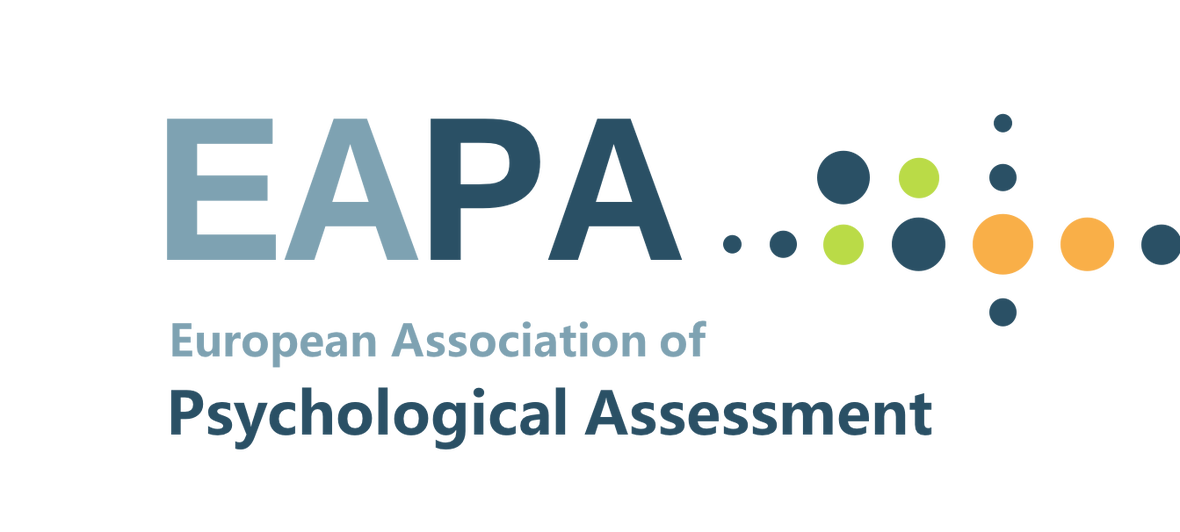Forensic Assessment
EAPA Digital Event 2021
Forensic neuropsychological assessment: Protocols and instruments (Keynote)
Mário R. Simões, University of Coimbra, Portugal
This communication analyzes several topics related to the emergent area of forensic neuropsychological assessment, namely evaluation protocols, test usage (intelligence, cognitive functions, psychopathology, personality, performance and symptom validity measures) and ethical issues.These topics are discussed in the framework of civil capacity, penal liability and risk of violence contexts.
Date: 1 June 2021, 11 a.m. (Berlin time)
Register: Send email to eapa.online.event@gmail.com and state your name, the event(s) you want to attend and the email address we can contact you with.
Psychological Assessment in Forensics (Symposium)
Julia Korkman (Åbo Akademi University, Finland), Andreas Morkos (FernUniversität in Hagen, Germany), Jonas Schemmel (Psychologische Hochschule Berlin, Germany) & Jelena Zumbach (Psychologische Hochschule Berlin, Germany)
Forensic psychological assessment is one of the most common applications of psychology to the law. This symposium addresses the application of psychological research to legal questions in mainly two settings: 1) investigative interviews and credibility assessment in cases of suspected sexual abuse, and 2) the development and the explanation of aggressive, antisocial and criminal behavior. Schemmel et al. investigate predictive factors for the conclusions of court appointed psychological experts on the credibility of witness testimony, based on a file analysis of over 200 German credibility reports. Korkman focuses on the improvement of investigative interviews with children in cases of suspected child abuse, presenting results from two recent data collections in Finland. Mokros et al. provide insight on similarities and differences between the concepts of psychopathy and antisocial personality disorder, drawing on both, cross-sectional as well as a longitudinal data from a large sample of adult male Austrian offenders. Last, Zumbach et al. address the assessment of callous-unemotional traits in early childhood and its association with children’s socio-emotional development and aggressive behavior in a sample of over 300 children at preschool age.
When do psychological experts judge testimonies from criminal proceedings as not true? - An analysis of 209 "negative" credibility reports from Germany
Jonas Schemmel, Renate Volbert & Mona Leve
In Germany, there is a decade-long tradition to appoint psychological experts to judge the credibility of testimonies in criminal proceedings. This is often the case when there is no “hard” evidence at hand and therefore, the incriminating testimony is the only evidence available. Psychologists in Germany (and other European countries) apply a procedure called Statement Validity Assessment (SVA) in their credibility reports. SVA is based on a comprehensive hypothesis testing procedure to investigate whether a testimony might not be true but rather be fabricated or based on false memories. However, despite their long tradition, there is a considerable lack of data regarding credibility reports in Germany. We will present an analysis of 209 credibility reports from 1988 to 2015 where psychological experts could not reject the hypothesis that a testimony is not based on real experience. Specifically, we will focus on typical case constellations and the conclusions they entailed regarding whether a witness might fabricate the statement or have a false memory. We will discuss our results in light of recent criticisms raised concerning SVA.
Improving investigative interviews in cases of suspected child abuse in Finland: Results from two recent data collections
Julia Korkman
In Finland, two professional groups conduct investigative interviews with children in cases of suspected abuse: forensic psychologists and police officers. Both groups receive a one-year long training (16 days spread throughout the year) consisting of theory as well as feedback and supervision in small groups. The training has been ongoing since 2009 and it is now stated in the Pre-trial act that all who interview children should be trained to do so. The psychologists work within specialized university hospital units and typically, the most difficult cases are investigated in these units. These include the youngest children, children with disabilities or severe psychiatric problems and cases of allegations within difficult custody disputes. Prior to the onset of the training programme and the setup of the expert units, a study (Korkman, 2006) showed that investigative interviews with children in Finland were heavily leading and suggestive. Two different data collections have been analysed, one consisting of a representative sample of police-conducted child interviews throughout the country (during the years 2019 and 2020), and one consisting of interviews from the Helsinki university hospital unit (2014-2015). Preliminary analyses indicate the quality of interviews has improved significantly in both samples, and more so in the expert unit sample. Reasons for the results and the differences between and within the samples will be discussed.
Psychopathy vs. Antisocial Personality Disorder: Two sides of the same coin?
Andreas Mokros, Dahlnym Yoon & Reinhard Eher
Psychopathy is considered a personality disorder that is characterized by deceitfulness, callousness, and disinhibition. Given the proneness of highly psychopathic individuals to commit criminal offenses, psychopathy is regarded as a variant of Antisocial Personality Disorder (ASPD) by some - or even as a synonymous term. Drawing on two different strands of analysis, the talk will highlight similarities and differences between the two concepts: Factor-mixture modeling based on cross-sectional data hints at psychopathy and ASPD as representing a single entity, whereas longitudinal data point at an incremental value of psychopathy over ASPD in predicting re-offending. The data are from a large sample of adult male Austrian offenders (N > 1000). Mean time-at-risk was 10.1 years. Time-dependent outcome data were analyzed through Cox regression and Harrell's C coefficient. Psychopathy was assessed through an observer-rating instrument, the Hare Psychopathy Checklist-Revised (PCL-R).
Psychopathy in early childhood? Factor Structure of the Inventory of Callous-Unemotional-Traits (ICU) in preschoolers and associations with social-emotional competencies and aggressive behavior
Jelena Zumbach, Annika Rademacher & Ute Koglin
Extensive empirical evidence suggests that high Callous-Unemotional (CU) traits in childhood and adolescence can reliably identify individuals at risk for severe antisocial outcomes. Previous analyses indicated inconsistencies in the specification of the construct of CU traits in samples of children and adolescents, with a specific lack of factor-analytic studies involving young children at preschool age. Additionally, most studies on CU traits and behavior problems in childhood do not consider children’s social-emotional development in their analyses. The present study addresses those research gaps by using factor analyses to investigate the factor structure of CU traits in young children at preschool age, rated by preschool teachers. The sample included 371 children (49.6% female, M age = 4.7, SD = 0.69) recruited from German preschools. Comparing six CFA models, results indicate that a two-factor model including a callous and an uncaring factor using 12 of the original 24 ICU items fits our data best. In a second step, cluster analytic strategies are conducted to identify groups of preschoolers concerning their social-emotional competencies and CU traits. Analyses reveal that a competent group includes children with high emotion knowledge/empathy and social competence, and low callousness and uncaring. A risk group of children demonstrates high rates of callousness and uncaring combined with weak emotion knowledge/empathy and social competence. A mixed group involves children who show average levels in CU traits and social-emotional development. ANOVA shows that children in the risk group demonstrate the highest levels of aggressive behavior while children in the competent group show the lowest levels of aggressive behavior. Characteristics of the competent group and the risk group indicate that the construct of CU traits in early childhood may be nothing other than a social-emotional developmental deficit.
Date: 1 June 2021, 2 p.m. (Berlin time)
Register: Send email to eapa.online.event@gmail.com and state your name, the event(s) you want to attend and the email address we can contact you with.


